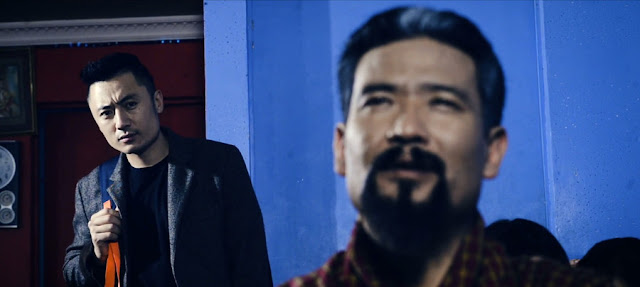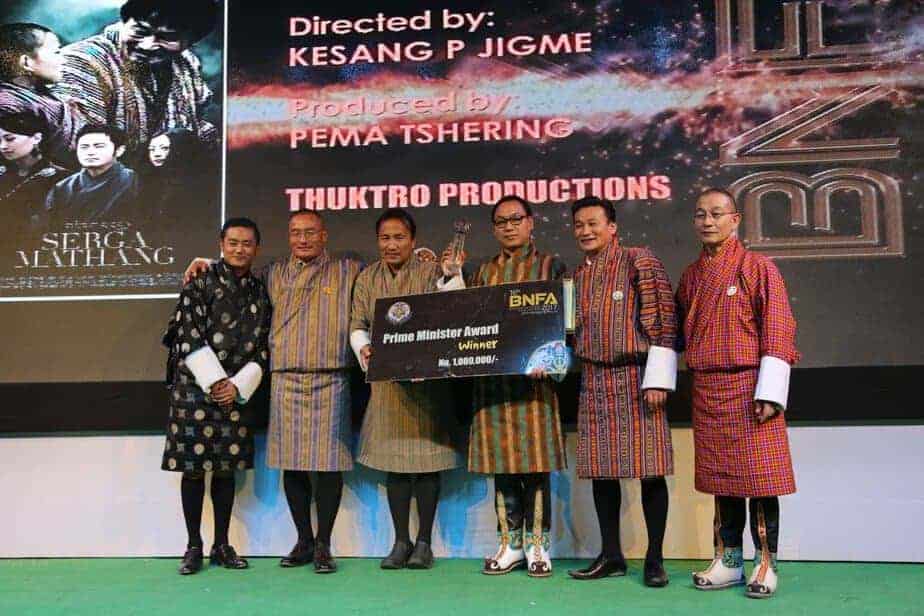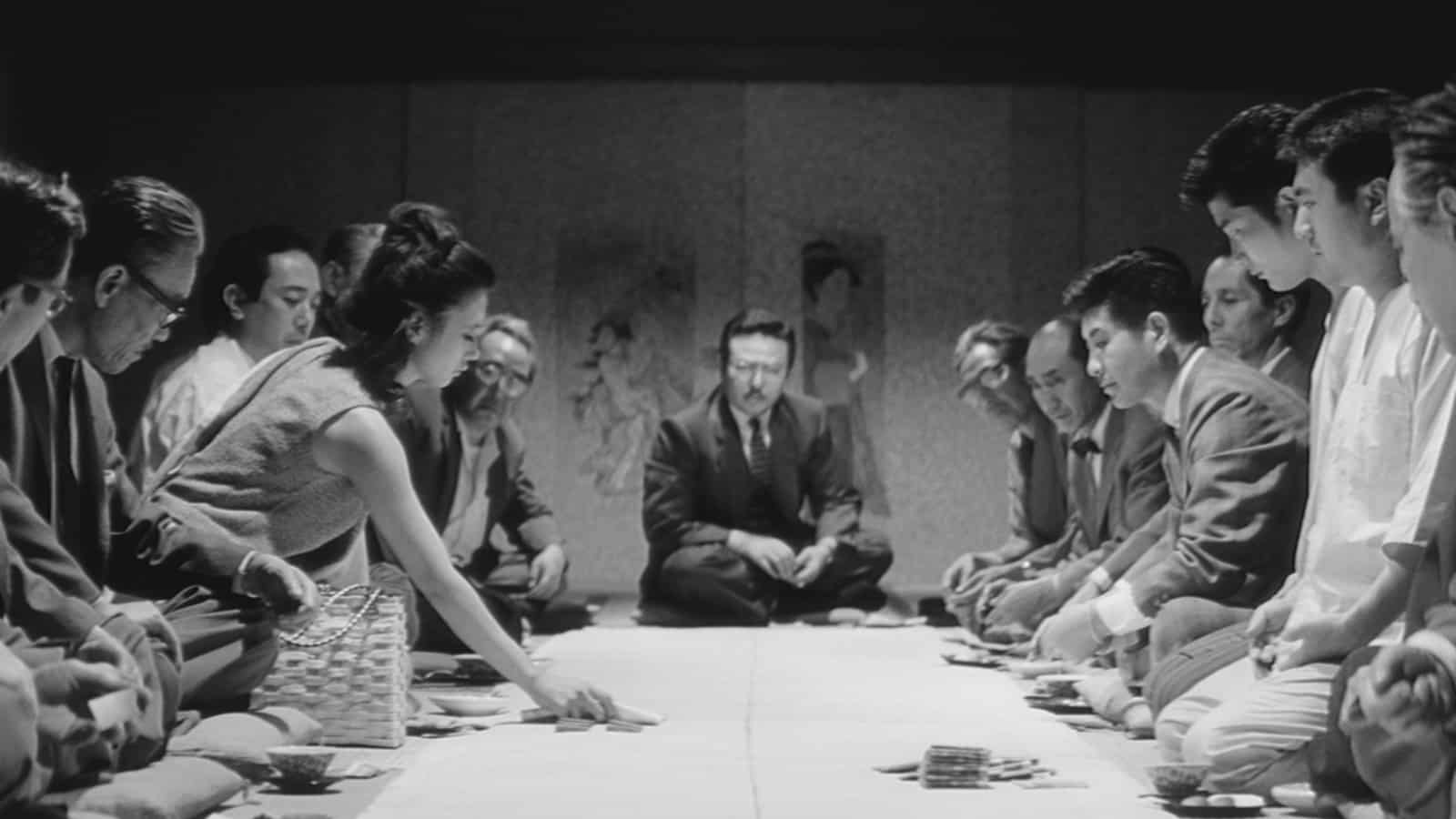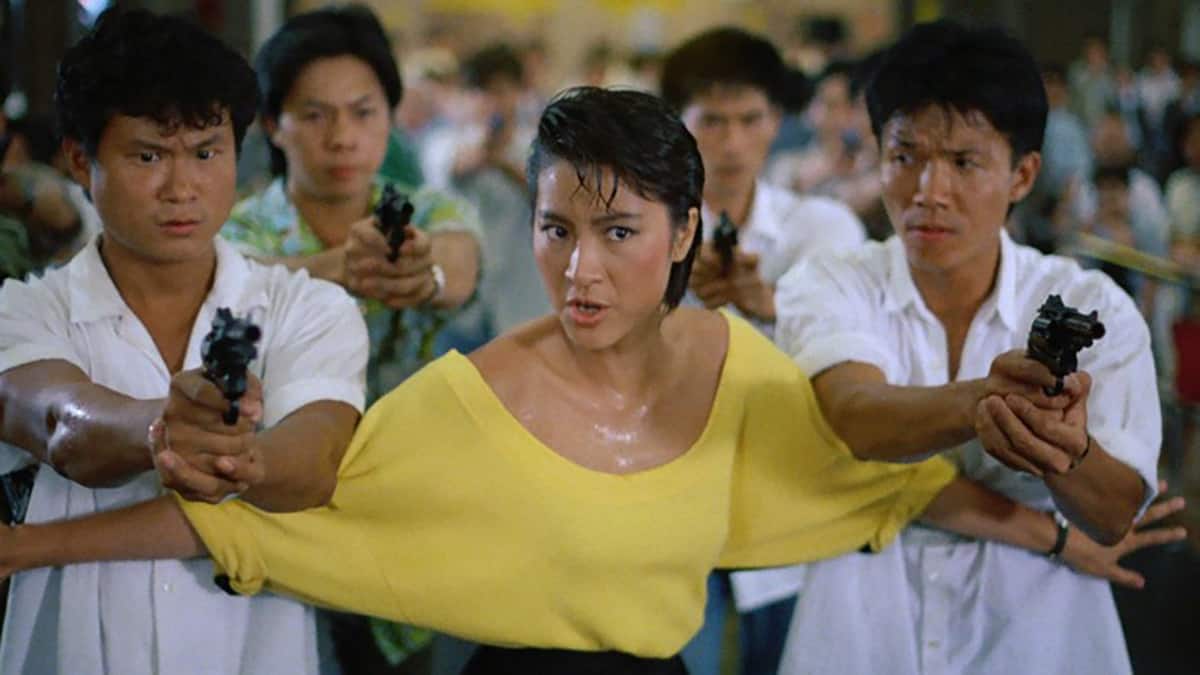Born in 1969, Pema Tshering is a producer, cinematographer, actor, director of Thuktro Productions studio, active in the film industry. He studied linguistics and cultural studies in Bhutan and cinematography in India. Between 2015 and 2017, he was on the board of Bhutan Film Association.
On the occasion of his films, “In a Defiled World” and “Golden Cousin” screening at Five Flavours, we speak with him about his career, the films, and Bhutan and its cinema.

Can you tell us how you got involved with movies at the very beginning?
In 1997, I saw an announcement in the news about the need for an artist for a commercial film. I took my chance and went for the screen test and to my surprise, I got shortlisted for a small role. After that, I got really interested in film making and never looked back ever since.
What was your earliest/most significant experience with film?
The earliest and the most significant experience I had with film, and something that I will never forget in my whole life was in 2004, when I was a part of two films called “6 Boys” and Yue Gi Bum. These two films really gave me a whole another level of experience, at the time, with film making and I am always grateful for how they shaped who I am right now.

What training or experience really helped you to become a producer?
The main thing that helped me the most in becoming a producer was my experience in distributing films throughout Bhutan in my earlier days, and as I went further, I grew confident that I could produce a film.
Do you find raising money the hardest part of producing?
Because Bhutan is a small country and still developing, you might find it hard to believe that there is no raising fund at all. Every penny is from our own pocket, so producing films in Bhutan is very tough.
What's the most unusual way you've ever funded a film?
The most unusual way I've funded a film was when I made my first feature film called “Karma The Destiny”. The director said the budget was low, but it turned out to be triple the budget he predicted, while we had already reached the post production.
What has been your proudest achievement as a producer?
My proudest achievement as a producer, in my 20 years of working in this field, was in 2016, because both of my films “Hum Chewai Zamling” and “Serga Mathang” won the highest honored Awards; Prime Minister's Award and The Best Film respectively.

What was the biggest challenge of “Golden Cousin,” with its basic premise that goes against an age-old tradition?
Well. we came across two huge challenges while making “Golden Cousin”. Firstly, after the story was written, we were worried whether the people might like it or misunderstand the story completely. And secondly, after we got confident with our story, it took us one month to get the title “Golden Cousin” approved by the Censorship.
“In A Defiled World” entails an impressive cast of Bhutanese actors. Was it difficult to bring them all together for the film?
Yes, it was very difficult to bring all the impressively talented actors of Bhutan together in one film, but when they all came together in field, all went smoothly, and I was happy and grateful.

Can you tell us a bit about your company, Thuktro? Are there any new projects being developed at the moment?
Well, firstly, Thuktro means ‘entertainment to the heart' in our language. I started this company in 2012, when I decided to start producing films. Thuktro presents original Bhutanese films that promote the indigenous tradition and culture of the Bhutanese people.
At the moment, we don't have any new project being developed as we just finished distributing our two films of 2016 and currently we got caught up in improving Thuktro's brand image through creating website (www.thuktro.bt), business cards, etc., and also submitting these two films to film festivals.
On average, how much a film in Bhutan costs and what is its margin for profit?
On an average production level, it cost around Nu. 3 million (approx. $ 46.000 ) where we usually get a net profit of 10 %, if the movie runs well.
How hard is for young directors to find their way in Bhutan film industry?
It's quite difficult for young directors to find their way to the film industry, mainly for two reasons. Firstly, because we are uncertain of how their work would turn out. And secondly, most people don't take the risk on the new director. Having said that, there are few young directors who have good public relations already, so they stand out and eventually find their way to the top.
Are there some funding or incentives from the Bhutanese government to promote the movie industry?
As far as I know, there's no funding or incentives from the Bhutanese government to promote the movie industry so far, but last year, in 2016, there was an award called the Prime Minister's Award which helped the winners immensely.

How is the distribution of the movies in a country that is in good part rural?
There's no distribution to the rural part of our country because of the lack of cinema halls. If we want to screen in the rural parts, we must carry our own equipment like projector, white screen background, movie players and even arrange places to screen our films. With that said, our government has plans on building cinema halls throughout the country, which would be of huge help to us in the future.
Do you think your job as a producer had an impact in the development of Bhutanese cinema
I'd like to think I did. Even though I endured so much loss while producing my films and struggled so much, I never gave up, thinking this would benefit the film makers and the youths of Bhutan on having employment opportunities. Also, I always worked on the development of the future of our film industry and my country.















